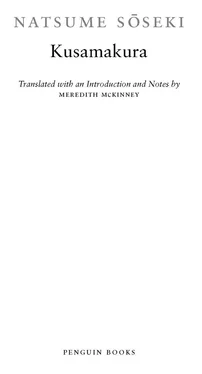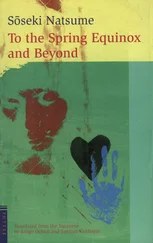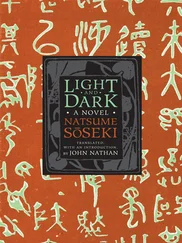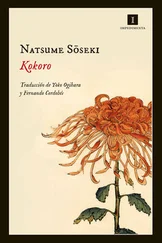Natsume Soseki - Kusamakura
Здесь есть возможность читать онлайн «Natsume Soseki - Kusamakura» весь текст электронной книги совершенно бесплатно (целиком полную версию без сокращений). В некоторых случаях можно слушать аудио, скачать через торрент в формате fb2 и присутствует краткое содержание. Жанр: Старинная литература, на английском языке. Описание произведения, (предисловие) а так же отзывы посетителей доступны на портале библиотеки ЛибКат.
- Название:Kusamakura
- Автор:
- Жанр:
- Год:неизвестен
- ISBN:нет данных
- Рейтинг книги:4 / 5. Голосов: 1
-
Избранное:Добавить в избранное
- Отзывы:
-
Ваша оценка:
- 80
- 1
- 2
- 3
- 4
- 5
Kusamakura: краткое содержание, описание и аннотация
Предлагаем к чтению аннотацию, описание, краткое содержание или предисловие (зависит от того, что написал сам автор книги «Kusamakura»). Если вы не нашли необходимую информацию о книге — напишите в комментариях, мы постараемся отыскать её.
Kusamakura — читать онлайн бесплатно полную книгу (весь текст) целиком
Ниже представлен текст книги, разбитый по страницам. Система сохранения места последней прочитанной страницы, позволяет с удобством читать онлайн бесплатно книгу «Kusamakura», без необходимости каждый раз заново искать на чём Вы остановились. Поставьте закладку, и сможете в любой момент перейти на страницу, на которой закончили чтение.
Интервал:
Закладка:
“I’m sure not.â€
“Stil , I don’t care if the police want to go counting farts. So what? They can’t do a thing to you, after al , unless you’ve done something wrong.â€
“It’s dreadful just to think something might be done to you on account of a simple fart, though.â€
“When I was a young monk, you know, my superiors always told me people never get anywhere with their training unless they can throw themselves into it with the same abandon it would take to expose your guts on the street in the heart of Tokyo. You should do the same sort of rigorous training, you know. Then you wouldn’t need to go traveling.â€
“If I were a real painter, I could achieve that sort of state whenever I wanted.â€
“Wel then, you should do so.â€
“I can’t if people are counting my farts al the time.â€
The abbot laughs. “Wel , there you are, you see. Now, that lass of Shioda’s, where you’re staying, young Nami, after she came back from the marriage, al sorts of things used to plague her mind, til in the end she decided to come to me for some Buddhist instruction. And now look at her, she’s come a long way with it. These days she’s got a fine head on her shoulders.â€
“Wel , wel , I did get the impression she was no ordinary woman.â€
“No, she’s very sharp. A young monk studying under me by the name of Taian was led to a moment of great crisis in life on account of her, you know. It’s proved to be an excel ent aid to enlightenment for him, I understand.â€
The pine casts its shadow across the quiet garden. The distant sea glimmers faintly, with a shifting light that seems to answer and yet not answer the lights that fil the sky. The fishing boats’ far lamps wink on and off.
“Look at the shadow of that pine.â€
“It’s beautiful, isn’t it?â€
“Is that al ?â€
“Yes.â€
“It’s not simply beautiful. It cares not if the wind blows.â€
I drink off the last of my tea, place the cup upside down on the tea tray, and rise to my feet.
“We’l see you as far as the gate. Ryoooneeeen! The guest is leaving!â€
When we step out of the priests’ quarters, the pigeons are cooing.
“There’s nothing more enchanting than pigeons, you know. I have only to clap, and they al come flying over. Here, I’l show you.â€
The moonlight has grown brighter stil . In the deep silence, the magnolia tree proffers its tangled branches of cloudy blossoms to the vault of the sky. Suddenly the abbot startles the very center of the clear spring night with a loud clap. The sound dies on the breeze, and not a single pigeon appears.
“Not coming, eh? Funny, I thought they would.â€
Ryonen looks at me with a hint of a smile. The abbot appears to think pigeons can see in the dark. What a happy innocence.
At the gate we part. I turn to watch their two rounded shadows, one large and one smal , fol ow each other back down the stone path and disappear.
CHAPTER 12
I believe it was Oscar Wilde who remarked that Christ’s approach to life was supremely artistic. I don’t know about Christ, but I certainly believe this statement could justly be applied to the abbot of Kankaiji. Not in the sense of tastes, or of being in accord with the times—after al , this is a man who hangs in his alcove a Bodhidharma scrol painting so execrable it scarcely deserves the name of art, and boasts about how fine it is; a man who believes that there are doctorates for painters, and who thinks that pigeons can see in the dark. But I would claim that, despite al this, he is a real artist. His heart is a bottomless wel . Everything passes straight through it without hindrance. He moves freely through al places, creates at wil , and moves on, and there’s not the least hint of any sul ying particle of experience remaining lodged within him. If just a touch of discernment and taste could be added to his brain, he would become the perfect artist, at one with whatever situation he found himself in, maintaining the artist’s essential state of mind even in the most trivial everyday moments of life.
I, on the other hand, wil never be an artist in the true sense as long as the detectives are stil at work counting my farts. I can turn to the easel, I can take up the palette, but I cannot be a painter. Only by bringing myself to this unknown mountain vil age and steeping myself deep in its late spring world have I at last found within me the attitude of the pure artist. Once I have crossed this frontier, al the beauties of the earth become mine.
Though no drop of paint nor jot of brushstroke ever meets the pure white canvas before me, I am nevertheless an artist of the highest order. I grant I do not equal Michelangelo in artistry, nor Raphael in skil , but my artist’s soul can take its place alongside those of the great men of antiquity, proud and equal. I have not made a single painting since arriving, indeed I almost feel that to have brought the painting box along at al was a mere whim. And you cal yourself a painter? you may say with a sneer. But sneer though you may, I am for the present a true artist, a magnificent artist.
Those who have attained this state don’t necessarily produce great works—but al who produce great works must first attain it.
These are my meditations as I savor a cigarette after breakfast. The sun has risen high above the trailing mists. I slide open the screen doors to gaze out onto the mountainside beyond. The spring green of the trees seems almost transparent in the sunlight and glows with an astonishing richness.
I’ve always felt that the relationship between air, form, and color is the most fascinating study that the world affords. Do you focus on color to evoke air, or on form? Or do you focus on air, and weave color and form through it? The slightest shift in approach can alter the feel of a painting in any number of ways. It wil also differ, of course, depending on the tastes of the painter himself, and be limited by the strictures of time and place.
The landscape paintings of the English contain no hint of brightness. Perhaps they dislike bright works, but even if this weren’t the case, nothing bright could be produced in that dismal air of theirs. The paintings of the Englishman Goodal , however, are a completely different matter, and justly so.1 Though he was English, he never painted a single English landscape. His subject was not his native land but exclusively the landscapes of Egypt and Persia, whose air is by contrast marvelously pure. Anyone seeing his paintings for the first time wil be astonished at their clarity and wonder that an Englishman could produce such bril iance of color.
Nothing can be done about individual tastes, of course, but if our aim is to paint the Japanese landscape, we must depict the air and colors peculiar to it. No matter how fine you think the colors of French paintings, you cannot simply borrow them wholesale and claim that your painting depicts a Japanese landscape. You must immerse yourself in the natural world, study its multifarious forms, the shifting ways of cloud and mist, morning and evening, and only then, when you have at last lit on the very color you need, should you seize your tripod and rush outside to paint.
Colors change from moment to moment. If you once lose the opportunity, you must wait a long time before your eyes fal on precisely this color again.
The mountainside to which I now lift my gaze is flush with a marvelous hue rarely seen in these parts. It’s a great shame to have come al this way to be confronted by this moment, and to let it slip. Let me just try to paint it. . . .
Читать дальшеИнтервал:
Закладка:
Похожие книги на «Kusamakura»
Представляем Вашему вниманию похожие книги на «Kusamakura» списком для выбора. Мы отобрали схожую по названию и смыслу литературу в надежде предоставить читателям больше вариантов отыскать новые, интересные, ещё непрочитанные произведения.
Обсуждение, отзывы о книге «Kusamakura» и просто собственные мнения читателей. Оставьте ваши комментарии, напишите, что Вы думаете о произведении, его смысле или главных героях. Укажите что конкретно понравилось, а что нет, и почему Вы так считаете.












